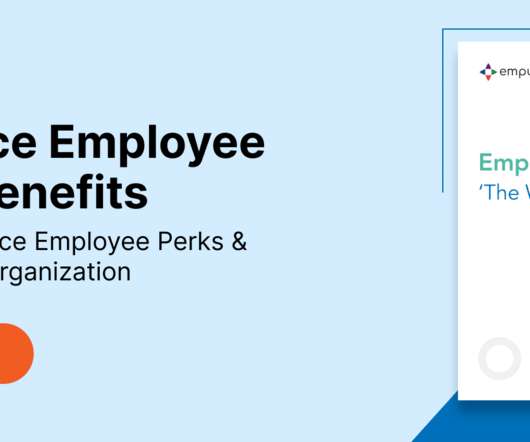Examples of fringe benefits by category
Business Management Daily
APRIL 29, 2024
A good regular salary may have been enough years ago, back when government subsidies managed things like healthcare and retirement, but those programs have become less and less effective. Maybe in addition to a couple weeks of paid vacation, your company offers no-questions-asked sick leave for employees who feel under the weather.












Let's personalize your content